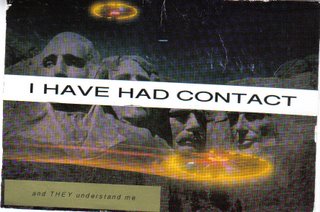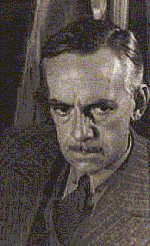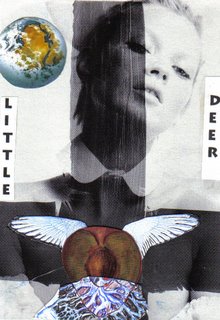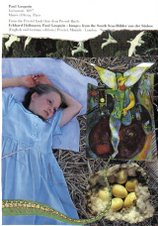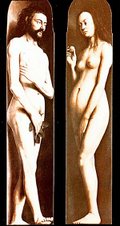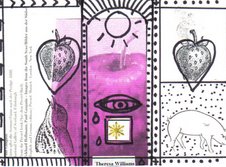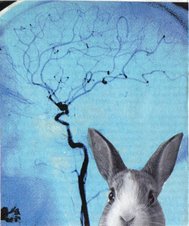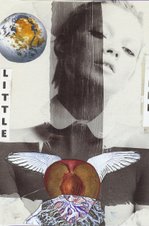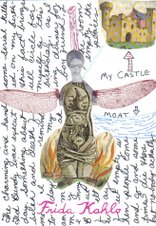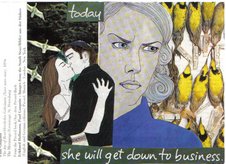My Collage: From Where You Dream. Based on Gauguin's Vairumati (1897)
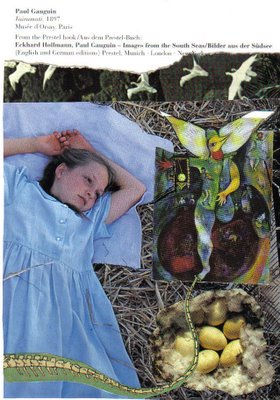
I can hardly believe it's been so long since I've posted. The last two weeks leading up to midterm were hectic. Also, I've felt in myself a real need to sit still and let a lot of my ideas go through a composting. I've been trying to hold onto that part of myself that makes stories, and this means not letting too many obligations pile on top of me and suffocate that source. I've tried to keep the streets and lanes and rivers to that source clear and clean of debris. Because once I get out of school for the summer, I want to hit the ground running: I want to write, write, write.
I've been continuing to do my collages, which I find very helpful. The imagery in the collages is like dream imagery. Doing the collages and then meditating on them afterwards keeps me close to my creative source.
Since I've been blogging, I've talked about two of my favorite books about writing,
If You Want To Write, by Brenda Ueland and
On Being A Novelist, by John Gardner. I'd like to now add another book to my list of great books about writing:
From Where You Dream, by Robert Olen Butler. This book was recently recommended to me by my friend, Paula.
There are so many books about writing. You have to be careful. When you're first starting out and trying to find yourself as a writer, the tendency is to blame yourself for your failure to connect with these books. I know I have blamed myself, calling myself "dense" or, worse, losing heart and thinking I must not be a writer after all, since I apparently wasn't "getting it." What I've come to realize is that there are methods that work for some and not for others. Butler's methods seem to bring together a lot of the ideas I've been struggling toward since I've been blogging.
When Paula first e-mailed me and told me about Butler's book, I hesitated. Did I really want to invite another book about writing into my life? Was this how I needed to spend my time, really? Reading a book about writing when what I should be doing is writing? I'm glad I gave in to my curiosity and got the book. The thesis of the book is that stories come from the same place as dreams. You have to go into your unconscious. Instead of "brainstorming" ideas for stories, Butler says we should be "dreamstorming."
Before you embark on a big project, like a novel, he suggests going into your writing space every day for several weeks and "dreamstorming" onto notecards, one sensory impression per card. He stresses that you have to do this
every day. It hit me as I was reading Butler's book, that this is an exercise that may prove extremely useful to me. As so many of you know, I want to do a book about my Ohio River Journey I took last year. Sometimes I feel so overwhelmed by it all--and afraid I'm not up to the task. I feel as James Agee did when he was trying to write
Let Us Now Praise Famous Men. Like Agee, I have such respect and awe for the subject matter that I'm afraid I won't do it justice.
The notecard method will be a way for me to tackle the material in small enough doses that I won't feel like I'm drowning; I won't feel overwhelmed by the material. If I start today (which I already have; I've done four notecards) and if I do notecards every day, then by the time school is out, I should have 200 or more notecards, which I can then lay out and sort. Butler swears by the method and says it is a way to deepen themes and find motifs. I believe him.
Of course, I've already done 200 or so notecards based on factual sources. I can mix and match all the notecards together to create a coherent narrative later.
There are many other things in the Butler book that I'm finding useful. I don't think all his methods will work for me, but, like Paula, I feel a deep affinity for most of what he says. I feel a camaraderie with his thoughts on story-telling, and the book is having much the same effect that Ueland's
If You Want To Write had on me years ago. I feel energized and filled and ready to embark on difficult projects! Ueland is great for beginners and for periodic renewal. I think Butler is taking me to the "next level." He has effectively synthesized so many of my own thoughts into a very readable and powerful text.
Thank you, Paula for recommending this book to me.
Oh, and thank you, Paula and all who stopped by Paula's blog to wish me well and offer congratulations about the OAC grant, and yell, "Surprise!" That meant a lot to me.

